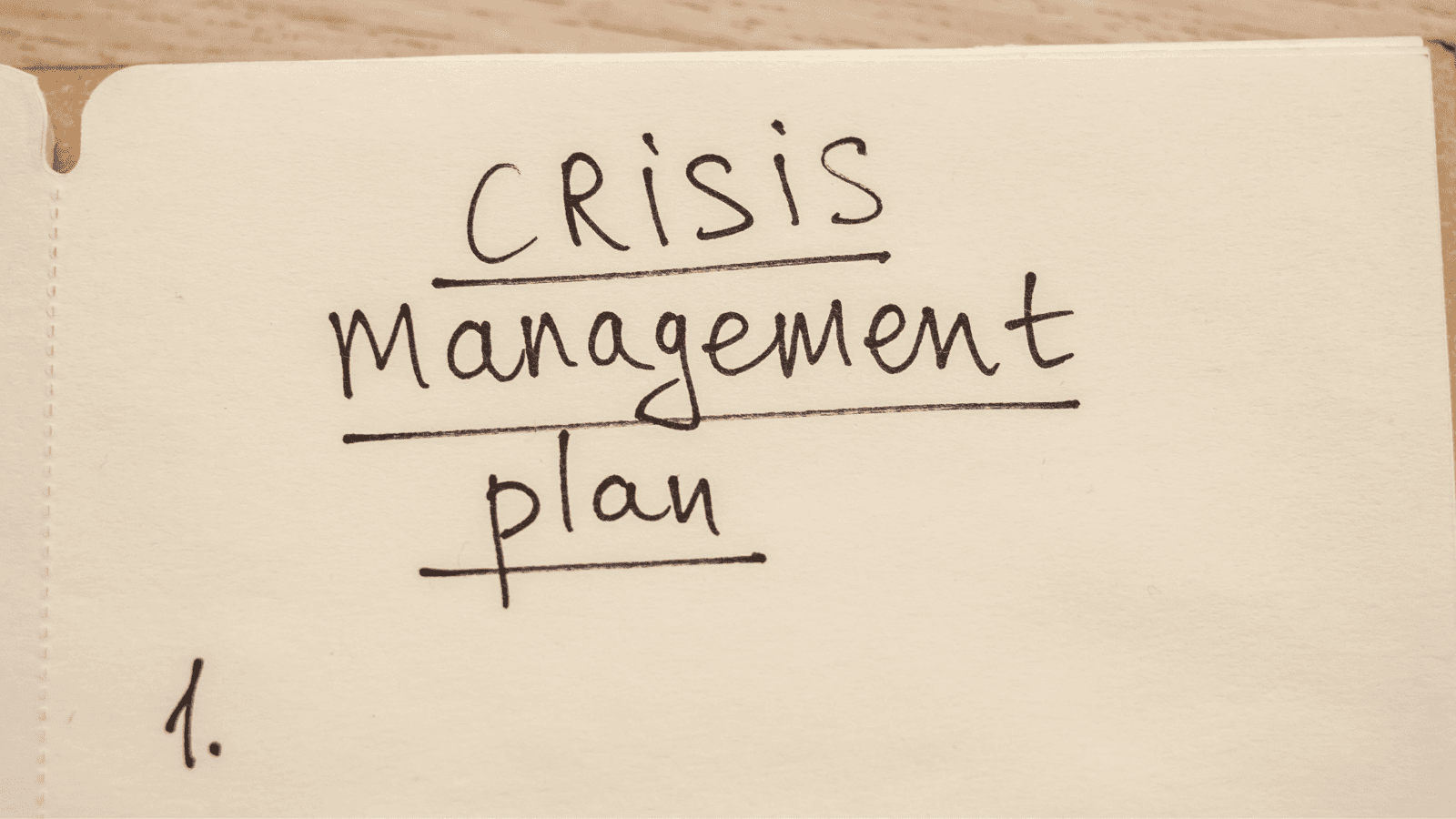Here are five reasons most crisis communications strategies fall short—and how to fix them before it’s too late.

Pete Mackey, Ph.D.
President & Executive Strategist
With the inauguration of a new Trump administration a few weeks away, campus leaders may find themselves reflecting on the intense crisis-management challenges they faced during President Trump’s first term. From heightened polarization to unexpected campus flashpoints, the stakes were high—and are likely to be even higher upon this time around.
Based on years of working with institutions on crisis preparedness, I have three primary concerns about how colleges and universities will navigate the potentially complex and difficult challenges ahead:
Too few institutions have a crisis communications plan.
Too often, institutions think they have a crisis communications plan because they have an operational crisis plan—even though the two plans are quite different and serve discrete purposes.
Institutions rarely practice crisis scenarios often enough to be ready when actual crises emerge.
Addressing these gaps is critical for the following reasons:
→ The Myth: “We’ll Figure It Out in the Room”
Far too often, institutions assume that when a crisis hits, thoughtful leaders gathered around a table can manage their way through it. That occasionally works, but the higher the stakes, the less likely it will. Without a clear strategy, the risks of sending conflicting messages, appearing disorganized, or failing to respond quickly enough escalate dramatically. The fallout from such missteps can take years—and significant resources—to repair and lead to long-term adverse effects for admissions, fundraising, reputation, and more.
A robust crisis communications plan isn’t just about peace of mind; it’s foundational to every other aspect of campus success, from supporting students and retaining top-tier faculty to protecting public safety and maintaining donor trust.
→ The Distinction: Operational vs. Communication Strategies
Another common pitfall is mistaking an operational crisis plan for a crisis communications plan.
Operational crisis plans focus on logistics: managing facilities and utilities, activating public safety protocols, and ensuring campus operations only suffer minimal disruption. As vital as they are, these plans don’t address why the institution will take a particular leadership approach in a crisis, what values and principles will guide crisis responses, who will craft messaging beyond operational needs, how those messages will be disseminated, who will decide what messages go to whom and when, what questions among constituencies need immediate answers, and more.
A crisis communications plan should identify key messaging responsibilities, define communications roles, outline protocols for engaging with the media, and include a framework for addressing stakeholder concerns swiftly and effectively, all in a manner that aligns with the institution’s values and mission. Otherwise, poorly managed communications will undermine even the best operational responses.
→ The Readiness: Preparation Requires Practice
Even excellent plans will fail if they’re not practiced. Crisis management requires developing muscle memory through regular drills and scenario-based exercises so everyone involved can work well together under pressure and understand how they will coordinate under stress. For example:
Do your leadership, operational, and communication teams know how to work together in high-stakes situations?
Is there a clear flowchart of decision-making that will guide leadership when numerous simultaneous demands pull at their attention?
Are roles and responsibilities so clear that, even when the road is roughest, campus leaders and communications staff know what to do (and not to do), and who decides?
Do all appropriate staff have the training necessary to handle media inquiries and angry stakeholders?
Practice prepares the team to think clearly and act decisively amid the most challenging and unexpected developments. Practice also provides the opportunity for staff from different areas to develop the collegial relationships that will be essential to the teamwork that highly pressurized crises require.
→ The Plan: Keep It Short and Actionable
One of the most common and costly missteps I encounter in crisis training is planning documents that are too long and complex. When a crisis hits, no one has time to wade through pages of hypothetical scenarios and detailed instructions.
Instead, your crisis communications plan should be concise, actionable, and easy to navigate under pressure. Think of it as a how-to manual:
Who speaks for the institution in what instances?
What are the immediate steps for internal and external communication?
Who drafts the materials, vets them, signs off on them, and shares them?
How do you ensure consistency across messages and platforms?
A well-structured, streamlined plan is a source of calm and reassurance, guiding you through the chaos and helping your institution emerge stronger on the other side.
→ The Time: Now
A poorly handled crisis can cast a far-reaching shadow over everything your institution works so hard to achieve. When is the last time you asked:
Do we have a clear, actionable crisis communications plan?
Do we know how it integrates with our operational crisis plan?
Are we regularly practicing them, apart and together?
With the right preparation, your campus can face 2025 and beyond with confidence. Don’t wait.
About Mackey Strategies’ Crisis Communications Services
We specialize in helping institutions develop the following:
Crisis Communications Strategies
The risks of a badly handled crisis demand preparation and objectivity on every campus. We help clients assess their plans and build customized crisis communications strategies, including tailored protocols, checklists, and assignment trees. We build these guides for actionable decision-making and quick and attentive communications management from the time a crisis begins until the matter is resolved.
Crisis Communications Training
A well-built crisis communications plan is crucial in today’s culture. It is equally imperative that those responsible for implementing the plan know how to use it. We provide customized crisis preparation and training, including best practices and tabletops around real scenarios, to help ensure that those responsible for managing crises are confident and well prepared when the need arises.
If you’re looking for guidance or support, we’d love to help—please get in touch.





